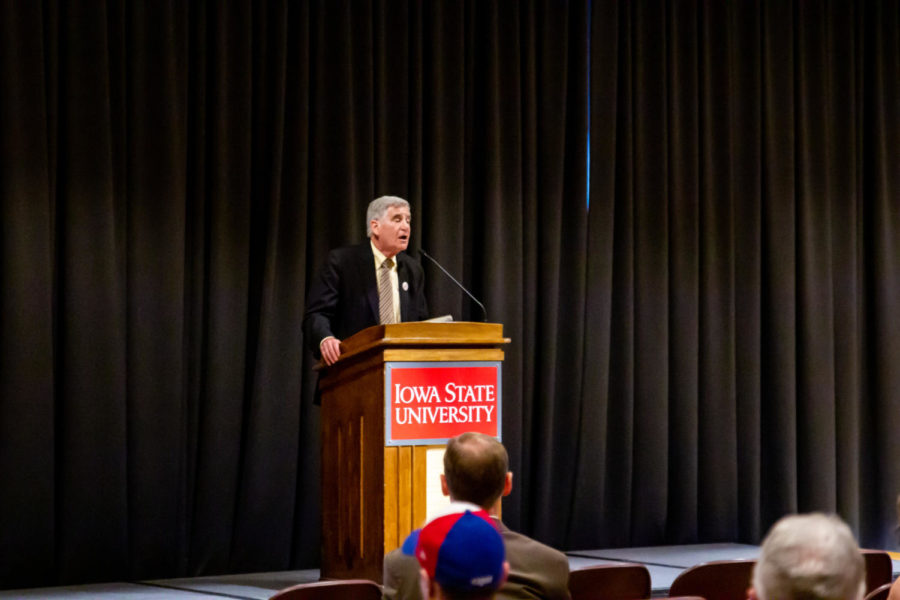- News
- News / Academics
- News / Politics And Administration
- News / Politics And Administration / Campus
- News / Politics And Administration / State
Professor speaks on academic freedom at Iowa State
Henry Reichman, professor emeritus of history at California State University, East Bay, spoke about academic freedom on Sept. 17 at Iowa State.
September 17, 2019
A hyper-partisan political atmosphere and the decline of the numbers of tenured faculty has raised concerns about academic freedom.
Henry Reichman, professor emeritus of history at California State University, East Bay, spoke late Tuesday at Iowa State about academic freedom. Reichman chairs the American Association of University Professors Committee on Academic Freedom and Tenure.
“[There are] three basic components of academic freedom,” Reichman said. “First is the freedom in the classroom [for] teachers to teach their subjects […] freedom in research and to control the results of research, and finally freedom to speak as citizens both of the institution and of the broader society — what we have generally come to call extramural expression.”
Reichman said it is increasingly common for faculty members to say controversial things — sometimes misinterpreted or edited to be taken out of context — and then have the controversial statements go viral online.
Reichman spoke about the case of Jeff Klinzman, a former adjunct professor at Kirkwood Community College. Klinzman was dismissed from his position at Kirkwood in the wake of social media posts he made regarding anti-fascist groups that were boosted by right-wing groups and went viral.
“Klinzman was not notified of any sort of right of appeal to challenge the decision to terminate his employment at Kirkwood,” Reichman said, reading from an op-ed written by the American Association of University Professors’ University of Iowa chapter.
Mack Shelley, Iowa State professor and chair of the political science department, said after the lecture right-wing groups think of universities in the United States as bastions of the left.
“There’s nothing new about that mindset — this goes way back; [Reichman] was talking about the McCarthy era […] basically you had people summarily because they were expressing views that various right-wing groups thought were not sufficiently supportive of American ideology,” Shelly said.
A 2019 Pew poll found 79 percent of Republicans say “professors bringing their political and social views into the classroom is a major reason why the higher education system is headed in the wrong direction.”
Reichman said the stance university administrations “must” take when a faculty member is “attacked” is to begin with principles.
“The faculty member has a right to extramural expression — all faculty expression is individual and does not represent the institution — and faculty members are entitled to academic freedom and that academic freedom is entitled to the protection of the university,” Reichman said.
The proportion of tenured faculty in the United States has steadily declined over the past several decades.
Reichman said the erosion of the tenure system is the “greatest” immediate threat to academic freedom today.
“About 30 or 40 years ago, about two-thirds of American faculty members in higher education — community colleges on up to research institutions — were either tenured or in the tenure system; today that number is only 25 percent.”
Shelley said public universities like Iowa State have an “ever-shrinking” resource base of funding from the state, with the amount of funding as a proportion of the university budget dropping significantly in recent decades.
“You have to have flexibility to work with expensive moving parts of the institution — which includes faculty […] you need to hire the best and the brightest, but also you have to be sure you can do that within a budget,” Shelley said. “That’s not to legitimate having lots of non-tenured faculty, but that’s the thought process.”

















